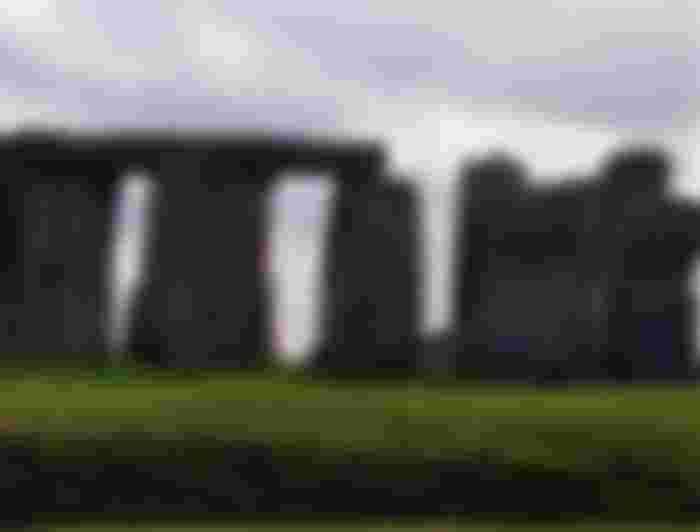The story of mankind has always been an interesting one, even though the details are often obscured by the passage of time. It is wonderful to contemplate that we all came from one couple once upon a time, and to see how far we have come in preserving this species despite our many differences. The history of our race, like the individual biography of each person, is an important record to study.
It is also a very difficult one to fully understand because there are so many conflicting theories put forth by scholars who have studied the ancient writings and artifacts. Every interpretation seems plausible at first glance but then runs into problems upon further examination.
There are many groups around the world that have their own records of past events, but they are all incomplete to some extent. Many different peoples used to try and keep written records of what was going on at any given time, but for one reason or another these were often destroyed by enemies in war or lost in natural disasters.
There is also much controversy over how old these civilizations really are. While it is obvious that humans have been around for a very long time, there are people who think that civilization started well before the accepted timeframe would indicate.
Some even maintain that men lived in highly advanced societies thousands of years ago, when in fact this could not be true. If you believe your ancestors were cavemen with clubs then you will naturally tend to look at any evidence from those times as being from barbaric people. The truth, however, is that humankind has evolved greatly over the centuries and is still evolving today.
It took me a whole month to write ✍️ this review.
So please read the full article & don't judge 😜A Short History of This Volume

What follows in this volume is an attempt to present a coherent view of what happened throughout history. It cannot be regarded as complete since it would take several volumes to do justice to all the events listed here. However, enough information has been put forth so that if you're reading this might gain some understanding of how things came about with regard to civilization's progress on various continents.
The book begins with ancient Mesopotamia, which is where people learned the basics of civilization. Life became very complex in this area, and by 3700 B.C. there were mighty cities built around it that displayed many advanced technologies for their time period. These included writing, construction methods, irrigation systems, extensive trade links to neighboring regions, efficient governmental organizations, mathematics and astronomy along with numerous impressive artworks created by noted artists of the day.
The history behind these accomplishments is explored in detail so that one might have a wider understanding of where things came from at this point in prehistory. It appears that ancient Mesopotamia was home to some very wise people who contributed much to what we now call civilization as we know it today.

Once you have read about all this, it will be easier to comprehend how hard it must have been for European explorers in the 16th and 17th centuries B.C. to make sense out of what they were seeing when they came across the monuments and artifacts which had survived from this earlier time period.
The book continues with a brief look at ancient Egypt, another place where people learned the basics of civilization under a powerful ruler known as a pharaoh. A lot of mystery shrouds the origins of Egyptian culture, but one thing that is certain is that by 3400 B.C., its inhabitants had created a written language along with many other things that made life more complex than ever before in history up until this point in time.
The writing system was exceedingly well suited to its function and was capable of recording many complicated ideas; it also included symbols that could be used for numbers and simple fractions.
This unique system gave the Egyptians a powerful advantage over other nations which were still using pictographic symbols, and it made it possible for them to do things such as write down scientific information about astronomy or mathematics in ways that those people who were living in those regions would be incapable of understanding.

The ancient Egyptians became quite adept at dividing up their regional empire among different pharaohs so they could all enjoy the rewards of power with little chance of having their lands invaded by neighbors.
Most of you will find it hard to believe that this civilization continued on uninterrupted even after the Roman Empire conquered Egypt around 30 B.C.; they might be inclined to think that with the fall of Rome in A.D. 476, ancient Egyptian civilization also came to an end.
However, this is not so since its people refused to abandon their culture when foreign invaders took over their land; the Egyptians continued on with life as usual and retained most of what they had learned up until that point in time for hundreds of years after the "last" Roman emperor was deposed by his Germanic mercenaries.
The book also talked about a detailed look at China's long history which spans 3,500 years or more; it is one of the few cultures whose timeline has survived all the way from antiquity into modern times and can boast several unique accomplishments such as having invented paper (and printing) along with the compass.
During the course of its history, China has gone through several different dynasties with different rulers at the helm; it also appears that invaders from outside its borders have often caused major disruptions that lead to drastic changes in their social and political structures.

Briefly looking at how this nation was influenced by religious ideas such as Buddhism is one way of showing how Chinese people throughout history have been able to maintain continuity even when faced with adversities brought about by war or other disasters.
Most of you will be impressed by how long and drawn out so many of their wars were and especially by the fact that they happened over and over again for nearly 1,000 consecutive years (about A.D. 907 – A.D. 1,127).
From China, book continues on to Japan where the reader learns that their people had many strengths in common with those who lived far away on the eastern shores of Asia. This island nation was greatly influenced by Chinese culture through its long history and even had strong ties with Korea, but there were also important differences which contributed to making them stand out from other East Asian cultures (such as their early adoption of Buddhism).
Like the majority of all the civilizations which rose up around this time, they did not develop writing until quite late; it took centuries for their language to finally become adapted into written form after contact with China proved helpful in this regard.

Unlike most other societies that existed prior to A.D. 1500, Japan was lucky enough to have a government which was quite capable of maintaining order and stability early on in its history. Every one of their emperors served as a strong central figure who was able to help the country avoid chaos even when threatened by wars from abroad or domestic insurrections from within.
Their nation has been well led for most of its existence and this is why it has been called a "divine land" by those who live there as long as anyone can remember.
The last two chapters continue with discussions about India, Southeast Asia, Africa, and South America; each region has unique cultural patterns which make them stand out from nearly everywhere else around the world at that time.
These indigenous societies were hardly primitive since many had developed complex social structures complete with laws, rulers, and important trading relationships along with writing systems of their own; some even had technological achievements that surpassed those of Europe.
To find out how it was that ancient civilizations were able to rise up and thrive in these areas for many centuries, visit Google Book to read the full book.





I have learnt a lot from your article, i really like to know more about history and humanity before technologies. Thanks for the good article